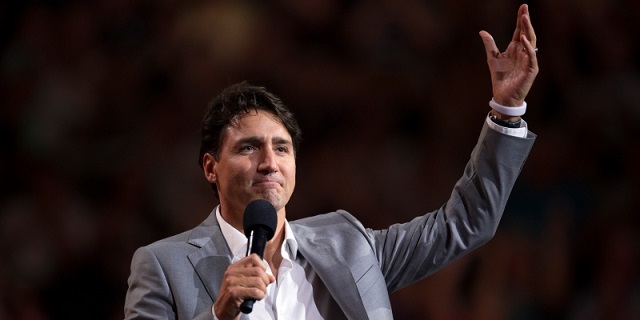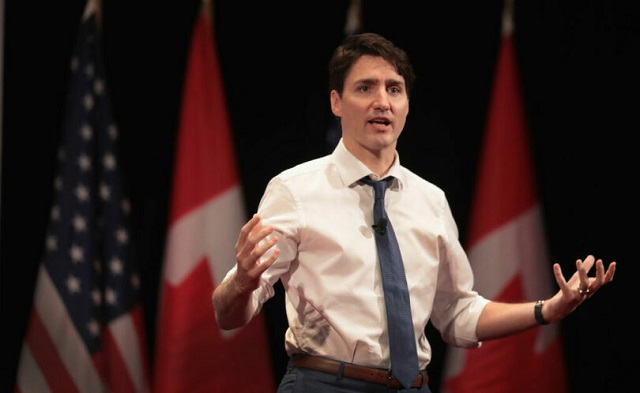Business
Disney faces losing control of its kingdom with Florida bill

By Mike Schneider in Orlando
ORLANDO, Fla. (AP) — Disney’s government in Florida has been the envy of any private business, with its unprecedented powers in deciding what to build and how to build it at the Walt Disney World Resort, issuing bonds and holding the ability to build its own nuclear plant if it wanted.
Those days are numbered as a new bill released this week puts the entertainment giant’s district firmly in the control of Florida’s governor and legislative leaders in what some see as punishment for Disney’s opposition to the so-called “Don’t Say Gay” lawchampioned by Republican Gov. Ron DeSantis and the Republican-controlled Legislature.
“Disney won’t like it because they’re not in control,” said Richard Foglesong, professor emeritus at Rollins College, who wrote a definitive account of Disney’s Reedy Creek Improvement Districtin his book, “Married to the Mouse: Walt Disney World and Orlando.”
With that loss of control comes an uncertainty about how Disney’s revamped government and Walt Disney World, which it governs, will work together — whether the left hand always will be in sync with the right hand as it has been with the company overseeing both entities.
The uniqueness of Disney’ government, where building inspectors examine black box structures holding thrill rides instead of office buildings, also complicates matters. The district essentially runs a midsize city. On any given day, as many as 350,000 people are on Disney World’s 27,000 acres (11,000 hectares) as theme park visitors, overnight hotel guests or employees. The 55-year-old district has to manage the traffic, dispose of the waste and control the plentiful mosquitoes.
“What kind of control is preferable? Control by a private business or corporation, or control by appointed officials, appointed by governor of the state?” Foglesong said. “Will they have the expertise to be able to make the new district work as efficiently as the old district works?”
The bill prohibits anybody who has worked or had a contract with a theme park or entertainment complex in the past three years, or their relatives, from serving on the revamped district’s board of supervisors, a prohibition that some experts say eliminates people with expertise in the field.
The bill’s sponsor, Florida Rep. Fred Hawkins, a Republican from St. Cloud, defended the exclusion Tuesday.
“This was a provision I requested,” Hawkins said. “We want to try to avoid any conflicts of interest of the new board members.”
Under the bill’s proposals, Florida’s governor appoints the five-member board of supervisors to the renamed Central Florida Tourism Oversight District instead of Disney. Limits would be placed on the district’s autonomy by making it subject to oversight and regulation by state agencies, and it would be unable to adopt any codes that conflict with state regulations. The district also would no longer have the ability, if it wanted, to own and operate an airport, stadium, convention center or nuclear power plant.
DeSantis started gunning for Disney’s private government last year when the entertainment giant publicly opposed what critics call the “Don’t Say Gay” law, which bars instruction on sexual orientation, gender identity and other lessons deemed not age-appropriate in kindergarten through third grade. Republican critics of the Disney district also argued it has given the company an unfair advantage over rivals in issuing bonds and financing expansion.
The Legislature passed a bill last year to dissolve the Disney government by June 2023.
Lawmakers are meeting this week for a special session to complete the state takeover of the district and approve other key conservative priorities of the governor on immigration and voter fraud. A Senate committee approved separate bills Tuesday to expand the governor’s migrant relocation program and allow the statewide prosecutor to bring election crime charges.
Florida Rep. Anna Eskamani, a Democrat from Orlando, calledthe Disney bill on Monday a “power grab” by DeSantis, a potential 2024 presidential candidate who has emerged as a fierce opponent of what he describes as “woke” policies on race, gender and public health. Such positions endear him to the GOP’s conservative base but threaten to alienate independents and moderate voters in both parties who are influential in presidential politics.
The changes proposed in the legislation were welcomed by at least one group of Reedy Creek employees — firefighters who have clashed in the past with district leaders. Tim Stromsnes, a spokesperson for Reedy Creek Professional Firefighters Local 2117, said all the current board cares about is “bonds and low-interest loans for building Disney infrastructure, and zero about treating its employees fairly.”
“We think they are going to be more receptive to first responders,” Stomsnes said Tuesday of the proposed new board. “They’re calling the governor a fascist for doing this … but he is actually fixing a fascist, Disney-owned government.”
To the relief of taxpayers in neighboring Orange and Osceola counties, the district won’t be dissolved, a prospect that had raised fears that the counties would have to absorb the district’s responsibilities and raise property taxes significantly. The Reedy Creek Improvement District has more than $1 billion in bond debt.
In a statement, Orange County said officials were monitoring the bill.
The new bill appears to address some key questions raised by last year’s legislation, primarily preserving the district’s ability to raise revenue and service outstanding debt, said Michael Rinaldi, head of local government ratings for Fitch Ratings.
Foglesong expects a legal challenge should the bill pass. Disney didn’t respond to an inquiry asking about any potential lawsuits.
“Disney works under a number of different models and jurisdictions around the world, and regardless of the outcome, we remain committed to providing the highest quality experience for the millions of guests who visit each year,” Jeff Vahle, president of Walt Disney World Resort, said in a statement.
Disney could make an argument that their rights as a private business are being undermined, Foglesong said.
“It will have political appeal, the arguments they make, in a Republican state for a potential presidential candidate,” Foglesong said. “It will be like, legally, ‘How can you do this to us?’ and politically, ‘How can you do this to a corporation that has done so much for the state of Florida?'”
___
Associated Press writer Anthony Izaguirre in Tallahassee, Florida contributed to this report.
___
Follow Mike Schneider on Twitter at @MikeSchneiderAP
Business
Taxpayers criticize Trudeau and Ford for Honda deal

From the Canadian Taxpayers Federation
Author: Jay Goldberg
The Canadian Taxpayers Federation is criticizing the Trudeau and Ford governments to for giving $5 billion to the Honda Motor Company.
“The Trudeau and Ford governments are giving billions to yet another multinational corporation and leaving middle-class Canadians to pay for it,” said Jay Goldberg, CTF Ontario Director. “Prime Minister Justin Trudeau is sending small businesses bigger a bill with his capital gains tax hike and now he’s handing out billions more in corporate welfare to a huge multinational.
“This announcement is fundamentally unfair to taxpayers.”
The Trudeau government is giving Honda $2.5 billion. The Ford government announced an additional $2.5 billion subsidies for Honda.
The federal and provincial governments claim this new deal will create 1,000 new jobs, according to media reports. Even if that’s true, the handout will cost taxpayers $5 million per job. And according to Globe and Mail investigation, the government doesn’t even have a proper process in place to track whether promised jobs are actually created.
The Parliamentary Budget Officer has also called into question the government’s claims when it made similar multi-billion-dollar handouts to other multinational corporations.
“The break-even timeline for the $28.2 billion in production subsidies announced for Stellantis-LGES and Volkswagen is estimated to be 20 years, significantly longer than the government’s estimate of a payback within five years for Volkswagen,” wrote the Parliamentary Budget Officer said.
“If politicians want to grow the economy, they should cut taxes and red tape and cancel the corporate welfare,” said Franco Terrazzano, CTF Federal Director. “Just days ago, Trudeau said he wants the rich to pay more, so he should make rich multinational corporations pay for their own factories.”
Business
UN plastics plans are unscientific and unrealistic

News release from the Coalition of Concerned Manufacturers and Businesses of Canada
“We must focus on practical solutions and upgrading our recycling infrastructure, not ridiculous restrictions that will harm our health care system, sanitary food supply, increase costs and endanger Canadians’ safety, among other downsides.”
This week Ottawa welcomes 4,000 delegates from the United Nations to discuss how they will oversee a reduction and even possible elimination of plastics from our lives. The key problem is no one has ever figured out how they will replace this essential component of our modern economy and society. The Coalition of Concerned Manufacturers and Businesses of Canada (CCMBC) has launched an information campaign to discuss the realities of plastic, how it contributes massively to our society and the foolishness of those who think plastics can be eliminated or greatly reduced without creating serious problems for key industries such as health care, sanitary food provision, many essential consumer products and safety/protective equipment, among others. CCMBC President Catherine Swift said “The key goal should be to keep plastics in the economy and out of the environment, not eliminate many valuable and irreplaceable plastic items. The plastics and petrochemical industries represent about 300,000 jobs and tens of billions contribution to GDP in Canada, and are on a growth trend.”
The UN campaign to ban plastics to date has been thwarted by reality and facts. UN efforts to eliminate plastics began in 2017, motivated by such terrible images as rivers with massive amounts of floating plastic and animals suffering from negative effects of plastic materials. Although these images were dramatic and disturbing, they do not represent the big picture of what is really happening and do not take into account the many ways plastics are hugely positive elements of modern society. Swift added “Furthermore, Canada is not one of the problem countries with respect to plastics waste. Developing countries are the main culprits and any solution must involve helping the leading plastics polluters find workable solutions and better recycling technology and practices.”
The main goal of plastic is to preserve and protect. Can you imagine health care without sanitary, flexible, irreplaceable and recyclable plastic products? How would we keep our food fresh, clean and healthy without plastic wraps and packaging? Plastic replaces many heavier and less durable materials in so many consumer products too numerous to count. Plastics help the environment by reducing food waste, replacing heavier materials in automobiles and other products that make them more energy-efficient. Many plastics are infinitely recyclable and innovations are taking place to improve them constantly. What is also less known is that most of the replacements for plastics are more expensive and actually worse for the environment.
Swift stated “Environment Minister Steven Guilbeault has been convinced by the superficial arguments that plastics are always bad despite the facts. He has pursued a campaign against all plastics as a result, without factoring in the reality of the immense value of plastic products and that nothing can replace their many attributes. Fortunately, the Canadian Federal court overturned his absurd ban on a number of plastic products on the basis that it was unscientific, impractical and impinged upon provincial jurisdiction.” Sadly, Guilbeault and his Liberal cohorts plan to appeal this legal decision despite its common-sense conclusions. Opinion polls of Canadians show that a strong majority would prefer this government abandon its plastics crusade at this point, but history shows these Liberals prefer pursuing their unrealistic and costly ideologies instead of policies that Canadians support.
The bottom line is that plastics are an essential part of our modern society and opposition has been based on erroneous premises and ill-informed environmentalist claims. Swift concluded “Canada’s record on plastics is one of the best in the world. This doesn’t mean the status quo is sufficient, but we must focus on practical solutions and upgrading our recycling infrastructure, not ridiculous restrictions that will harm our health care system, sanitary food supply, increase costs and endanger Canadians’ safety, among other downsides.” The current Liberal government approach is one that has no basis in fact or science and emphasizes virtue-signaling over tangible and measurable results. Swift noted “The UN’s original founding purpose after World War II was to prevent another world war. Given our fractious international climate, they should stick to their original goal instead of promoting social justice warrior causes that are unhelpful and expensive.”
The CCMBC was formed in 2016 with a mandate to advocate for proactive and innovative policies that are conducive to manufacturing and business retention and safeguarding job growth in Canada.
SOURCE Coalition of Concerned Manufacturers and Businesses of Canada
-

 Alberta2 days ago
Alberta2 days agoRed Deer Doctor critical of Alberta’s COVID response to submit report to Danielle Smith this May
-

 Business1 day ago
Business1 day agoDon’t be fooled by high-speed rail
-

 Alberta1 day ago
Alberta1 day agoActivity-Based Hospital Funding in Alberta: Insights from Quebec and Australia
-

 Business1 day ago
Business1 day agoUN plastics plans are unscientific and unrealistic
-

 Business1 day ago
Business1 day agoTaxpayers criticize Trudeau and Ford for Honda deal
-

 Fraser Institute1 day ago
Fraser Institute1 day agoCanadians should decide what to do with their money—not politicians and bureaucrats
-

 Addictions1 day ago
Addictions1 day agoBritish Columbia should allow addicts to possess even more drugs, federal report suggests
-

 Alberta23 hours ago
Alberta23 hours agoAlberta official reveals ‘almost all’ wildfires in province this year have been started by humans








